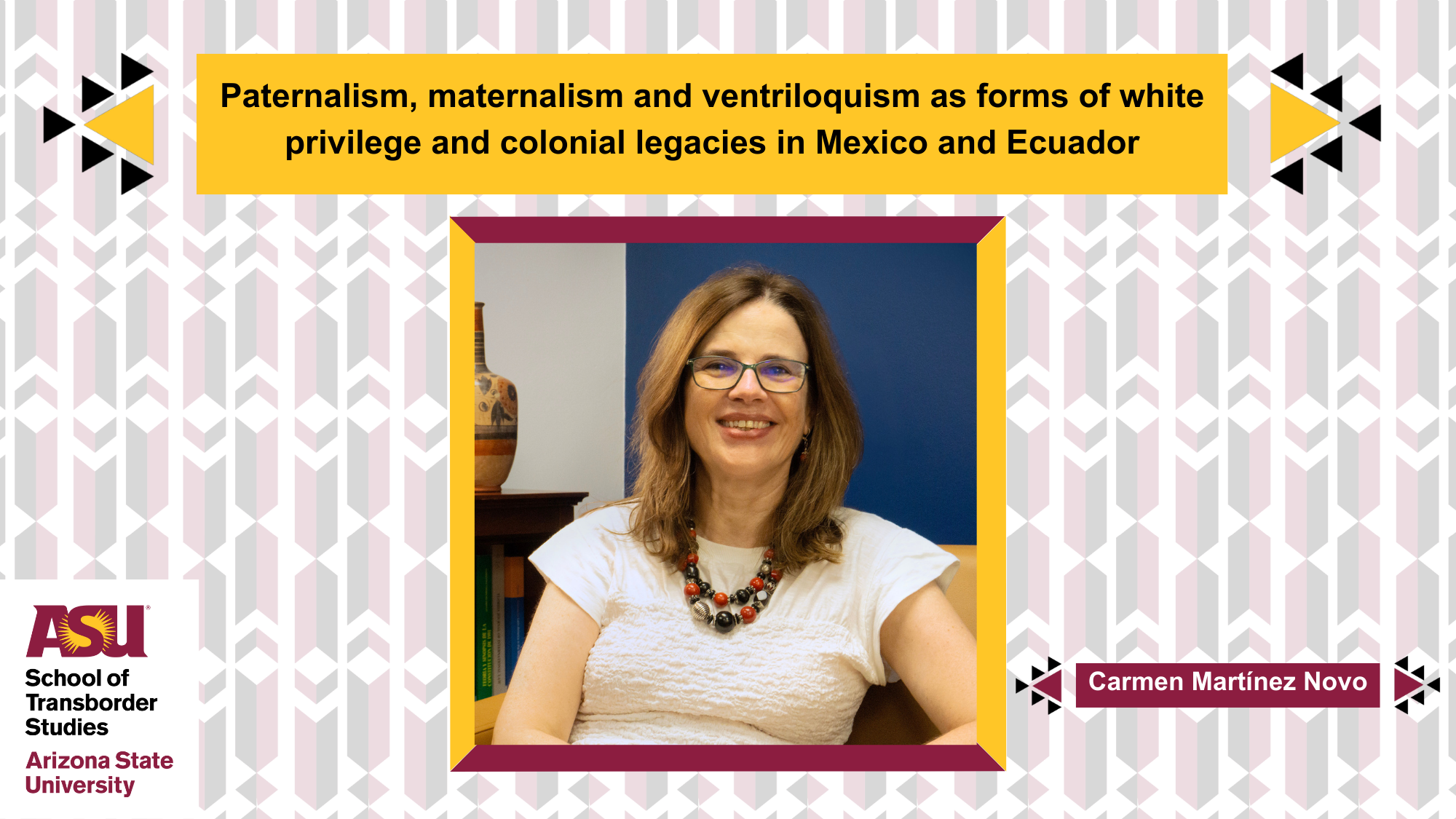Paternalism, maternalism and ventriloquism as forms of white privilege and colonial legacies in Mexico and Ecuador

Event description
- Academic events
The talk argues that being “white-mestizo” in Mexico and Ecuador is not only about skin color or phenotype, but also a way of acting that provides advantages to some groups over others. More specifically, I discuss the privilege of claiming to protect and speak for others through a discussion of the concepts of paternalism, maternalism and ventriloquism. Maternalism is highlighted given the important role played by upper-class, white-mestizo women as mediators in inter-ethnic and inter-class relations. I argue that similarly to mestizaje, to speak for others and become their advocate is a false promise of inclusion. The contemporary behavior of dominant groups is traced to colonial social relations congealed in specific legal figures that have lingered in the legislation of some Latin American countries until recently. It is argued that the afterlife of these juridical statuses continues to shape contemporary inter-ethnic relations. Finally, I discuss how patterns of paternalist and maternalist domination came to constitute a coherent system for the management of racialized populations.

